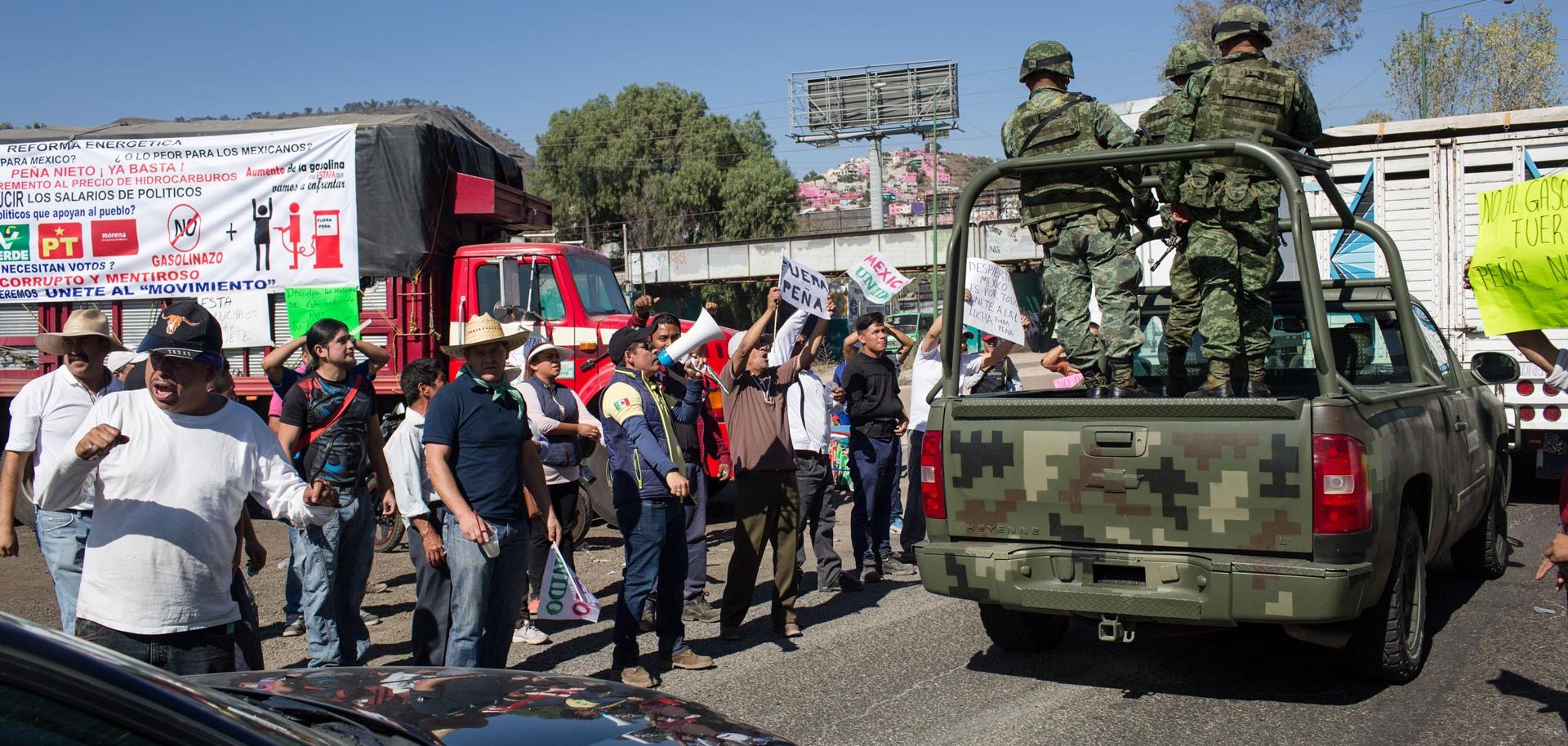ASSESSMENTS
If Fuel Price Protests in Mexico Grow
Jan 9, 2017 | 10:38 GMT

(BRETT GUNDLOCK/Getty Images)
Summary
Mexico has marked the start of 2017 with a wave of protests over a proposed increase in fuel prices. The protests involve a wide range of political groups: Social movements such as teachers' unions have joined in the country's southwest, truckers' unions have blocked roads, and regular citizens have come out into the streets. Looting also began on Jan. 1, damaging hundreds of stores across the country, with most of the ransacking occurring in urban areas such as Mexico City, Veracruz and parts of Mexico state.
Though media attention has focused on the fact that some protests are violent, the violence is not the full story. What's more interesting is that the protests are not part of a centrally organized movement. Instead, their strength depends on regional movements, such as transport unions, and on how many demonstrators they draw out through efforts like online calls to protest. To truly understand their importance, one must analyze the underlying causes of the protests and how they will affect the country's politics if they grow.
Subscribe Now
SubscribeAlready have an account?
